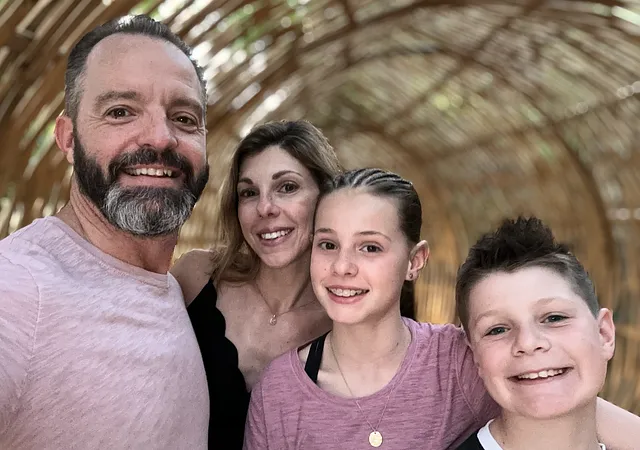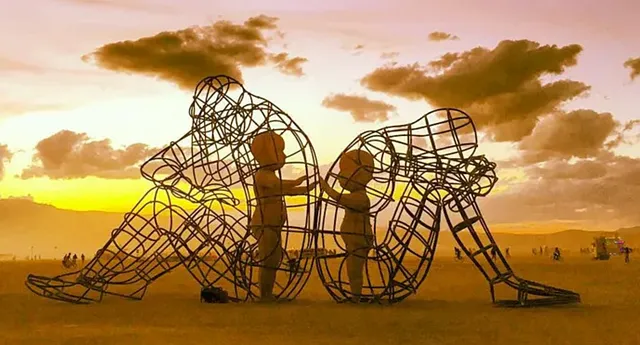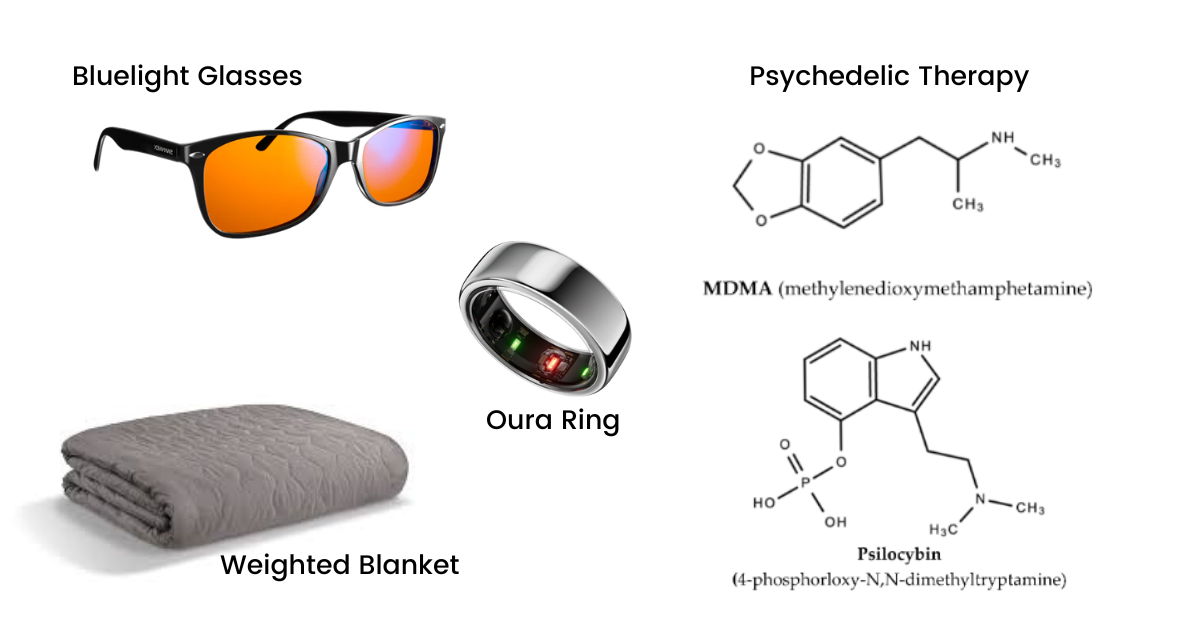When I got asked to do my first Young Presidents Organization (YPO) talk, I was super excited.
See, I have been a speaker for 20+ years, speaking on stages everywhere from big conferences and annual meetings for executives to more intimate settings with entrepreneurial groups like BabyBathwater Institute and Cadre.
And I did the rounds hard after Grow Regardless in Vistage, becoming one of their top-rated speakers. But YPO always held this next-level allure since so many of my clients were part of this elite CEO-peer group.
The ask came in from a non-client CEO who, for the past few years, noticed something about my social media posts. I was talking beyond my normal Grow Regardless rally cry for CEOs, beyond my Shifting the Work rap on how to align your culture to your highest and biggest dreams, and even beyond the issues in the community of inequity and inequality for Baltimore and what we have been up to with Conscious Venture Lab.
For the past 20 years, in the background, I had been running another layer of code that rarely got air time or even a mention: my wellbeing, health, longevity practices, and psychedelic therapy.

After watching 23 people I knew and cared about (including my Mom) die by the time I was 23, I always felt like I was on borrowed time and that I had to make the most of every day. I looked for every angle and way to feel more whole.
What was even cooler was that this ask was at the peak of COVID when everyone was asking questions about their health.
Well, this CEO took note, was in a YPO group, and knew a few members were looking to explore the radical edges of performance longevity and even the depths and layers of consciousness.
At first, when he asked, it was a “why me” moment, given I am not a health or biohacking expert. In fact, on the biohacking side, I have always looked at my practices as hacking other experts rather than coming up with my own.
But when musicians start playing music, they sometimes start by playing covers of other people’s music until they find their own voice.
I’m not an expert or sage on a stage. What I am is a lifelong learner and student of the game of life.
With this in mind and a million other disclaimers, I agreed to the invitation to speak to his YPO group.
That’s how I began talking about how I am not an expert, but a student in my own health. Fueled by the death of my Mom, I wanted to give myself as many healthy days with the people I love the most.

Moving From Trend to Mend
Up until seeing Dave Asprey in 2014 at Cadre, everything I was doing felt more like grabbing the latest cleanse, workout protocol, and other related supplements or hacks to throw the kitchen sink at it.
Dave was one of my first teachers. His philosophy started and ended with ‘we are all different. We need an N=1 approach to health care.’
I was instantly intrigued and have been using a lot of what Dave talked about, like quarterly blood panels, treating your body like a mini-experiment, drinking less coffee, getting 7+ hours of sleep, and increasing the ATP production of mitochondria. Dave links health to decision-making. Meaning, if clear-minded, you are in a better position to make the best decisions in business and life.
In the past eight years, I lost weight, slept great, and can honestly say I feel like I have unlocked another level in a video game of energy and focus.
Looking Back and Propelling Forward

Death was a big part of my PTSD growing up, but so were six concussions and a few hardcore sports injuries, alongside a few street fights.
When people hear PTSD, their first and only thought is often veterans of war. But if you are curious, check out an amazing book, The Body Keeps the Score, and/or the work by Gabor Mate, which might help widen your aperture here a bit.
The basics of your physical health are critical, but we also often negate our mental and emotional health in the process to the detriment of our overall health improvement.
I’ve long embraced a journaling and gratitude practice, but I could never crack the code of meditation and mindfulness until I started doing psychedelic therapy back in 2017.
I read Aldous Huxley's Doors of Perception and loved it. But what I didn’t love was trying to decipher the best access point, given its legality.
Like most great things in my life, I didn’t have to force it. It flowed, emerged, and unfolded… and that captures the essence of my first MDMA/Psilocybin experience in 2017.
It was literally mind-blowing.
Up to this point, I was winning at the game of life – but losing at the game of wholeness and health.
After making it out of my childhood, trauma, and hardship, I spent the last 20+ years achieving at every level and effort. Businesses, books, investing, community work… everything on paper looked great and I thought I was going to feel great.
It was the first time I could look at myself in the mirror and honestly say that nothing on the outside was making the inside feel better.
I will write in another blog about three stories that shaped my beginning more than most, but this first experience was a major unlock for me.
It's a Shame to Ignore the Science and Momentum
If you want to get a great historical account of psychedelic medicine work, check out MAPS and books like The Psychedelic’s Explorer's Guide, How to Change Your Mind, A Dose of Hope, and The Immortality Key.
Also, here are some highlights from a recent John Oliver piece:
- The promise of psychedelics has been shown to treat conditions like PTSD, addiction, and depression.
- A recent clinical trial of MDMA-assisted therapy found that for those suffering from PTSD, 67% no longer qualified for a PTSD diagnosis just two months after treatment.
- Indigenous communities have been conducting rituals that involve mushrooms, peyote, ayahuasca, and other ceremonial medicines far longer than Western civilization has. Psychedelics outside of Indigenous communities really picked up around the middle of the last century.
- Unfortunately, by the late 1960s, psychedelics became increasingly associated with the counterculture, and the government cracked down on that movement.
- Junk studies made dubious but terrifying claims, like LSD could warp your chromosomes.
- Nixon passed the Controlled Substances Act, which placed LSD and psilocybin in the most restrictive legal category possible, alongside drugs like heroin, essentially stopping medical research dead in its tracks.
- In recent years, perceptions have begun to shift, with the FDA granting breakthrough status to support the study of MDMA for treating PTSD and doing the same for psilocybin to treat depression.
- Different psychedelics can work in different ways, but research shows MDMA dampens the response in the amygdala, meaning patients can confront and process trauma they wouldn’t otherwise face.
Plus, if you want a FANTASTIC beginner's guide to psychedelic therapy, check out my friend Tucker Max’s guide. He put a tremendous amount of work into it, and I often refer people who are curious there.
For those who are unaware, Johns Hopkins, NYU, and Stanford University have all been researching these substances on and off for decades.
The biggest use cases have been either to heal a past trauma or find greater peace and enlightenment.
In fact, the biggest upside so far seems to be in soldiers with the worst form of PTSD. Many have seen significant improvements after three sessions of assisted MDMA therapy. Seventy percent of participants stopped having symptoms of PTSD.
That’s right, stopped having symptoms, which could also be said to mean their negative symptoms were cured.
Stigma Holds People Back

My YPO talk hit on areas like sleep, toxins, and other gear and gadgets for your health. But it would be hard to skip past the benefits of this alternative form of therapy.
Truth be told, right after my first few psychedelic therapy experiences, I brought this topic to a group of business leaders, including an expert from JHU. I was met with a ton of resistance.
After that, I learned the best way to talk about this is not to.
The old adage is when the student is ready, the teacher will appear.
Move past the stigma that psychedelic therapy really means just getting high in someone’s basement.
Psychedelic therapy truly means that you are willing to do the hardest work of your life. You face your past and your demons… and learn so much in the process.
Not easy, but that’s why most things in life like that are worth it.
I'm Coming Into My Own in a New Way

The talk was well received and opened a can of worms for me.
I feel the pull to play a bigger part as this work is coming into the mainstream.
At this point, I have close to 50+ friends who have had this experience. For most, they felt progress toward healing their whole self.
Since then, I have been investing in this space, supporting those holding space, being an advocate of science, and taking a call at least weekly from someone curious.
The point of this post?
Come out of the mushroom closet. Be of service to anyone in pain and normalize being humans first and CEOs second. The pressure of running a company can be both real and made up.
It’s hard.
Not dealing with your shit is hard – but so is dealing with it.
In my experience, this work has been the single greatest tool and lever for me. It’s enabled me to feel genuinely good inside, not just appear good on the outside.
For anyone curious about my experience, I am going to write a few more pieces with the hopes of offering a few alternative views and calling the stigma into question.
Of course, if you have a CEO group and want someone to share about the importance of wellbeing, wholeness, mental and emotional health, longevity, and psychedelic work, hit me up.
Anything is possible if we put everything on the table.







